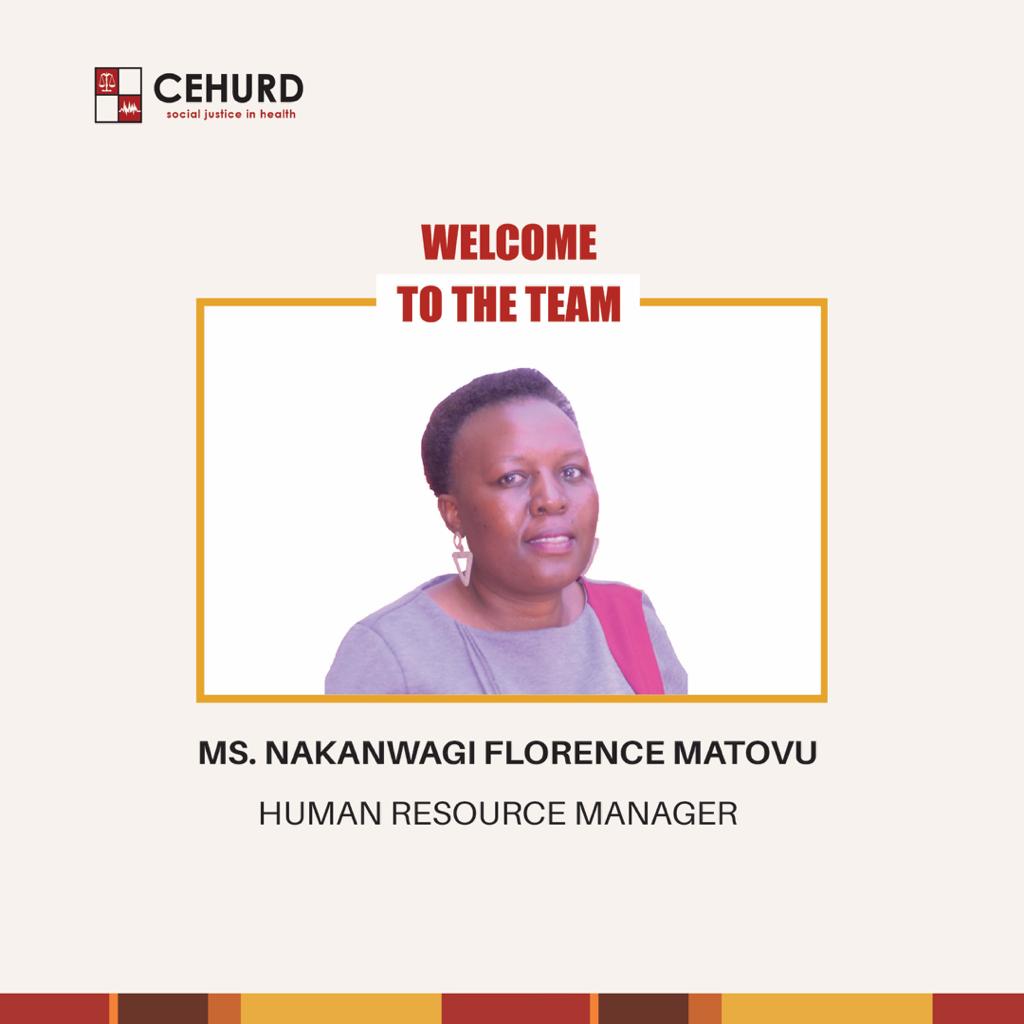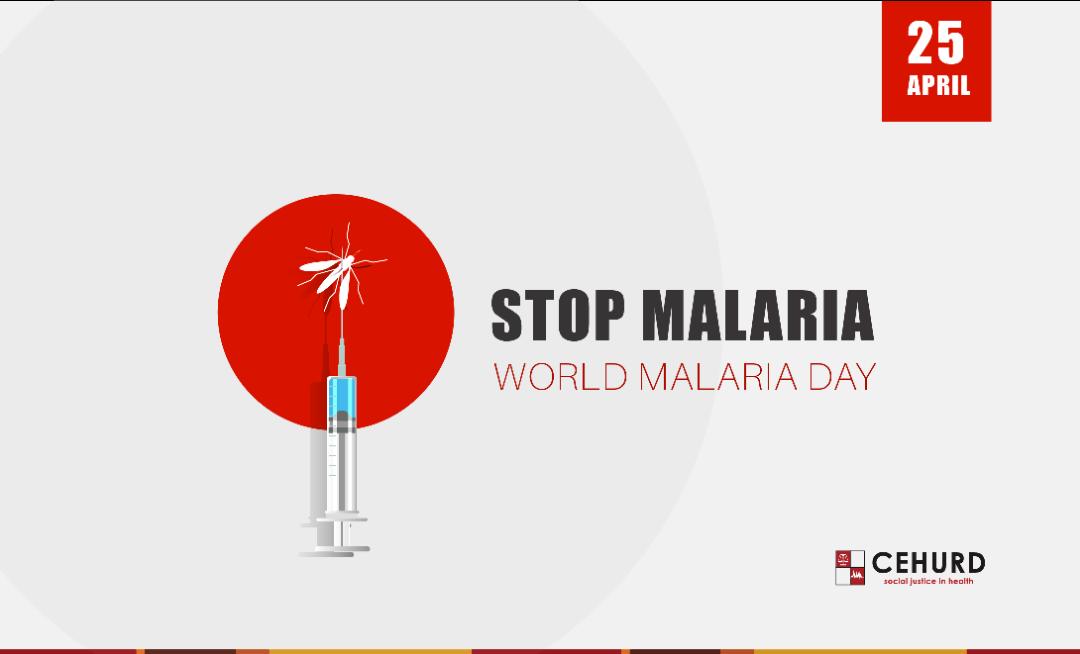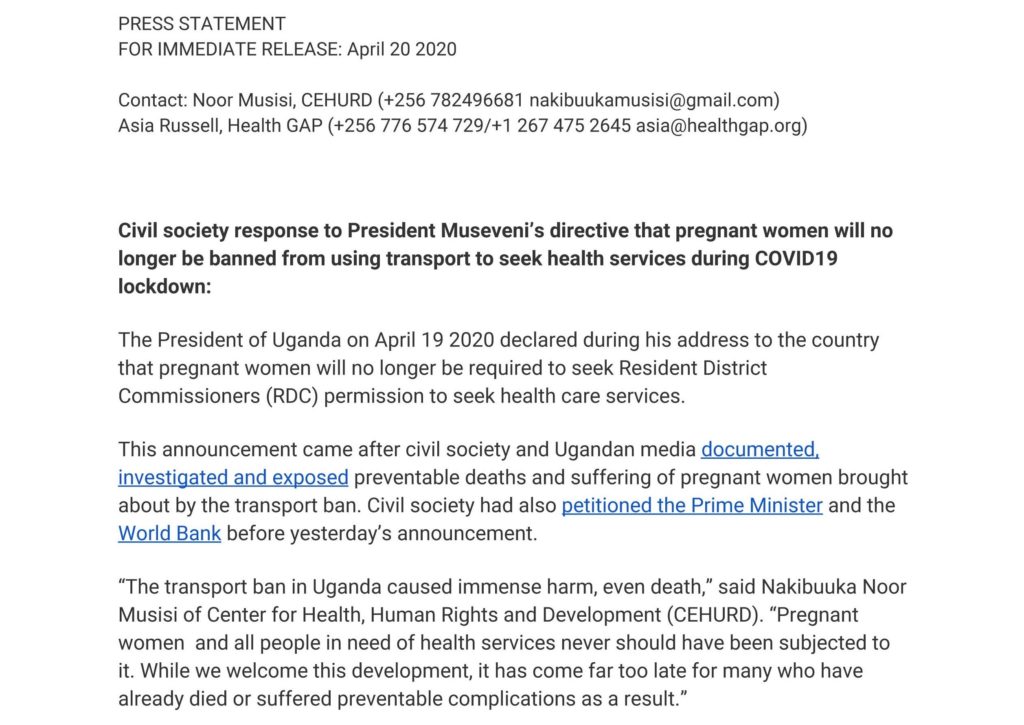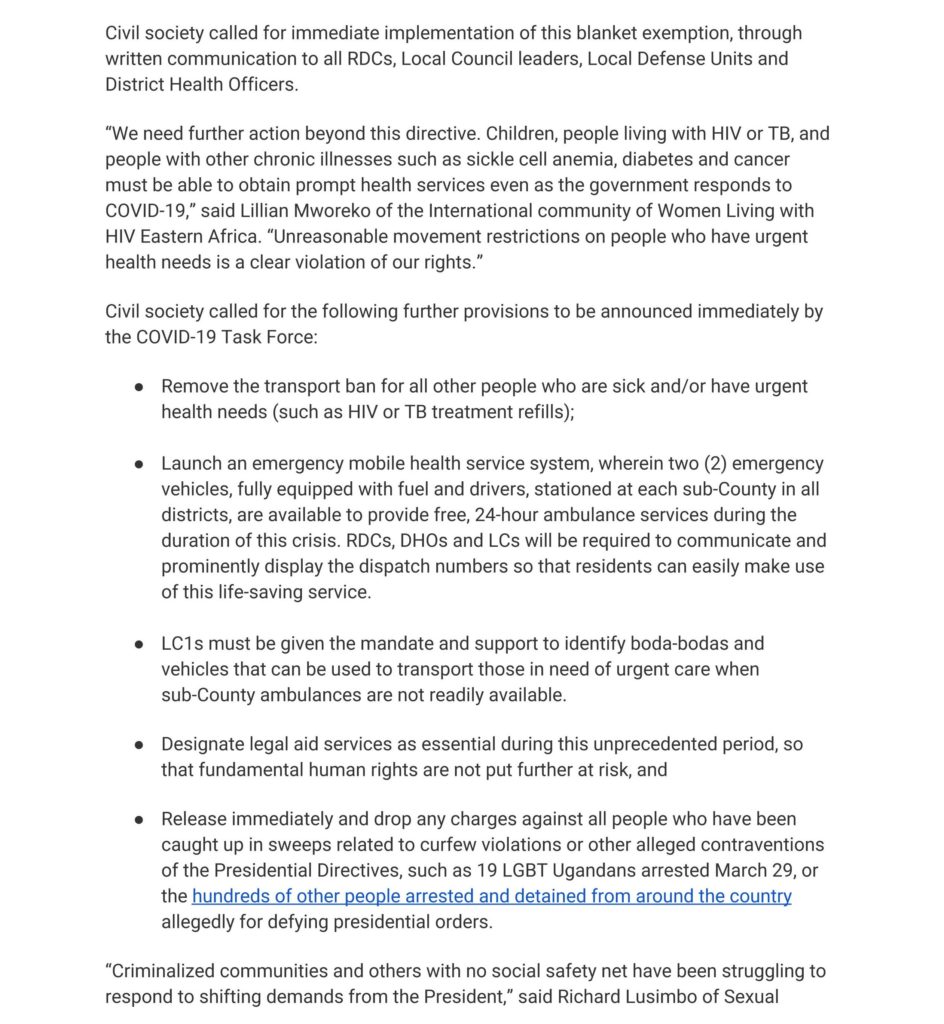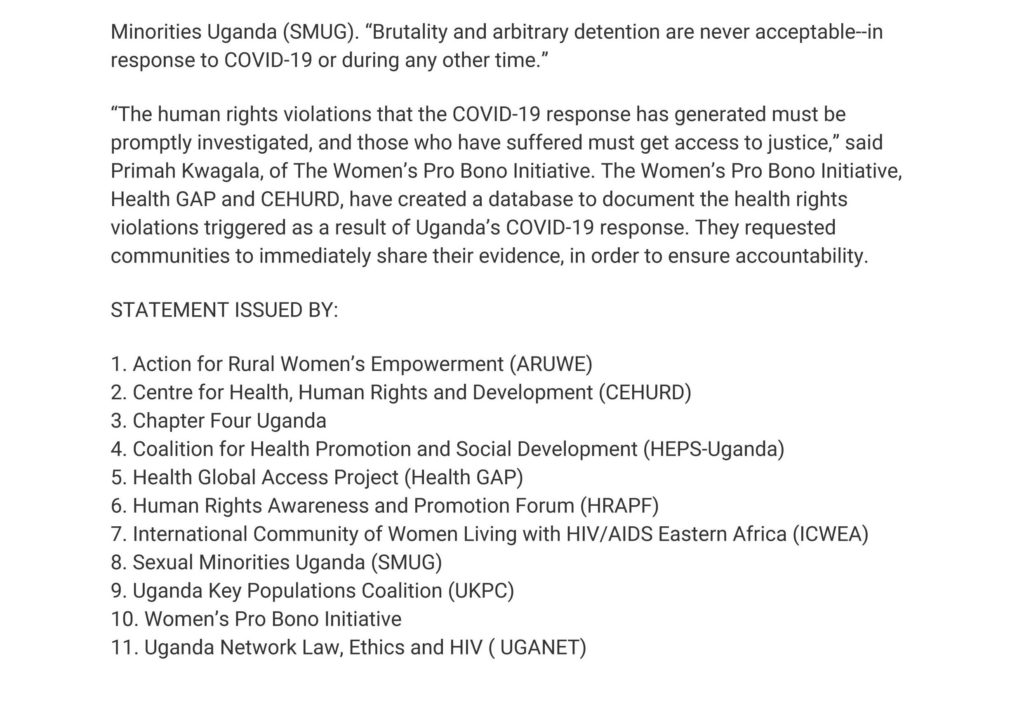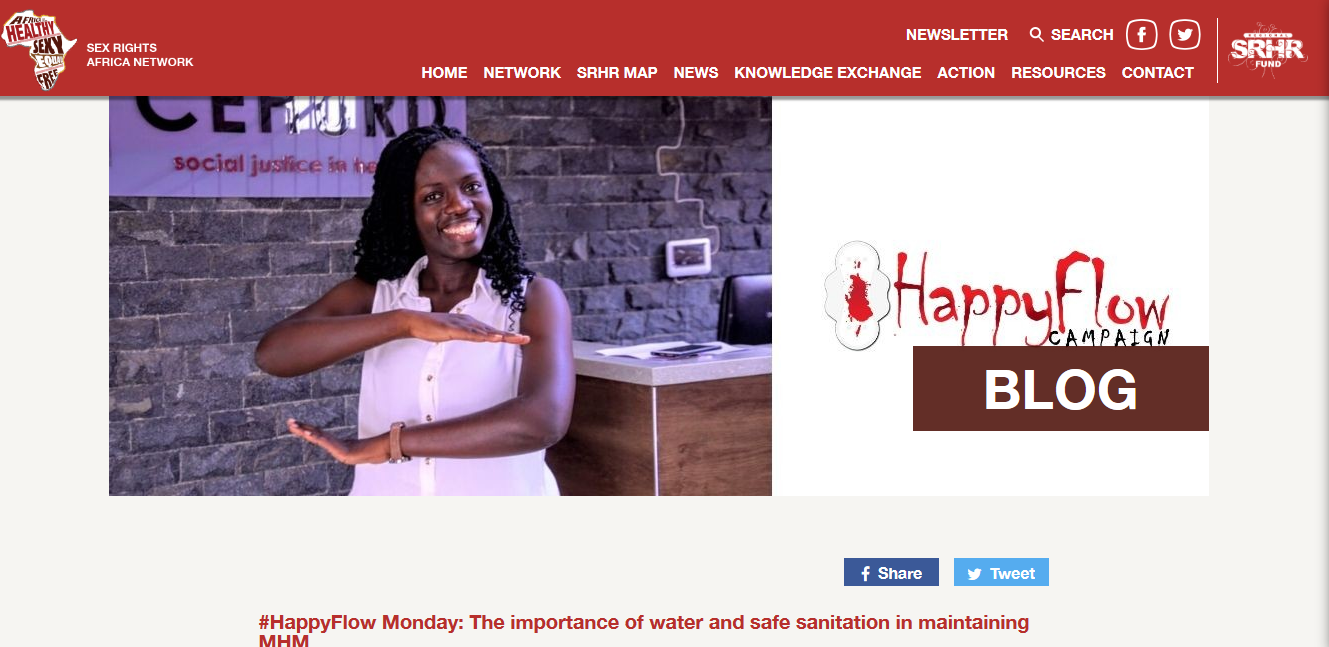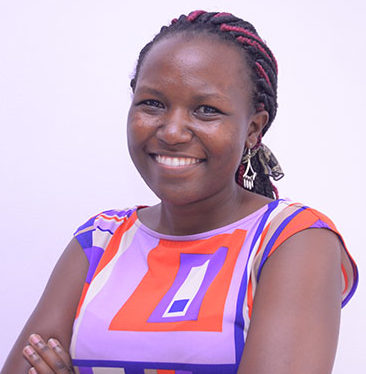Angella Kyagera
Program Officer in the Community Empowerment Program at the Center for Health, Human Rights and Development
At the moment, almost all efforts, energies and resources are geared towards COVID-19, the global pandemic. Killer diseases like malaria are almost forgotten. Malaria is a disease transmitted by mosquitoes that kills more than one million people in Africa annually. Whereas it is a preventable and treatable disease, malaria is still the leading cause of death among children under five mostly in the sub-Saharan Africa region yet also a global public health concern that perpetuates a vicious cycle of poverty in the developing world.
Uganda has the third highest deaths from malaria in Africa and some of the highest recorded malaria transmission rates in the continent, particularly in the areas around Lake Kyoga in central Uganda. The Ministry of Health stated on August 12th 2019 that there had been an increase in the Malaria cases by over 1 million countrywide for the period of June-August 2019. It also stated that there has been a 40% increase in the Malaria cases from 1 million cases in June 2018 to 1.4 million cases in June 2019. The increase in Malaria cases was attributed to seasonality, climate change, reduced net ownership and use due to the aging of nets distributed in the 2017 mass campaign, low malaria prevalence in areas such as Kampala, Population growth and refugee immigration in specific regions. The pearl of Africa also contributes to about 5% of global malaria deaths but strides have been taken to reduce these numbers with a total of 2.2 million nets handed out in 2008 so the proportion of long-lasting insecticidal net (LLIN) coverage has now reached an estimated 84%. Health workers at all levels (including the private sector) were also trained in integrated management of malaria (IMM) in 102 of 112 districts (10,500 HWs), including training in the management of severe malaria. Clinical audits for severe malaria were performed in 34 of 112 districts. The Ministry of Health has also supported districts with increased cases to order and receive emergency services, revised the quantification of ACTs for this financial year, redistributed malaria commodities from facilities and districts with overstocks to those that are facing a stockout of malaria commodities. They are also monitoring malaria cases, admissions and deaths and using data to guide decisions at all levels. This has helped identify and contain many outbreaks and continued the routine distribution of long lasting insecticide treated mosquito nets (LLINs) to pregnant women attending antenatal care and children in immunization clinics. It has also fast tracked the implementation of the 2020 LLIN mass campaigns and introduced new channels of LLIN distribution such as schools in selected districts.
Globally, every year on the 25th of April, we remember the deaths caused by malaria. It is also an opportunity to highlight the need for better political interventions in malaria control and prevention. This day marks the milestones in the fight against malaria as well as continuously contributing to the efforts in averting this disease through sensitizing citizens mostly in malaria affected countries on simple actions they can take to prevent and treat this killer disease. As a means of investing in ending malaria, some efforts such as engaging community, national and global leaders to prioritize the fight against this disease have been put in place.
During last year’s commemoration under the theme “Zero Malaria Starts with Me,’” we called upon relevant stakeholders to highlight the importance of robust health and surveillance systems. These systems can sustain malaria prevention and control interventions for the most vulnerable as the world grapples with COVID-19. This day also highlights the importance of upholding progress and commitments made in the global fight to end malaria. We call upon all stakeholders to recognise and revitalise the involvement of high-burden countries in Africa, which account for approximately 70% of the global malaria burden as we put an end to this killer disease.
As we try to address and control the COVID-19 pandemic, let us not forget to equally invest in building and supporting resilient health systems that protect and advance progress against further outbreaks of existing infectious diseases like malaria.
Whereas the efforts to contain the spread of the coronavirus should be appreciated, the government should not neglect the interventions and delivery of other health services including prevention and treatment of malaria. This therefore means that governments must put in place avenues to make delivery of all health services accessible, acceptable, available and of good quality.
Experience from previous disease outbreaks has shown the disruptive effects on health service delivery if diseases such as malaria are ignored. For example, the 2014-2016 Ebola outbreak in Guinea, Liberia and Sierra Leone, undermined malaria control efforts and led to a massive increase in malaria-related illness and death in the three countries. COVID-19 pandemic reports from the World Health Organization (WHO) show that in Africa, which carries more than 90% of the global malaria burden, 37 countries had reported cases of the Coronavirus as of 25th March, 2020. To contain the spread of the Coronavirus, most of these African countries declared several measures including continuous lockdowns which are a threat to accessing health services.
In recent days, there have been reports of the suspension of insecticide-treated nets (ITN) and indoor residual spraying (IRS) campaigns in several African countries due to concerns around exposure to COVID-19.[1] Suspending such campaigns will leave many vulnerable populations at a greater risk of malaria, particularly young children and pregnant women. WHO strongly encourages countries not to suspend the planningfor – or implementation of – vector control activities, including ITN and IRS campaigns, while ensuring these services are delivered using best practices to protect health workers and communities from COVID-19 infection. Modifications of planned distribution strategies may be needed to minimize exposure to the coronavirus.
Also, delivery of intermittent preventive treatment in pregnancy (IPTp), seasonal malaria chemoprevention (SMC), and intermittent preventive treatment in infants (IPTi) should be maintained provided that the best practices for protecting health workers – and other front-line workers – from COVID-19 are followed. Ensuring access to these and other core malaria prevention tools saves lives and is an important strategy for reducing the strain on health systems in the context of the COVID-19 response.
There have been reports of disruptions in the supply chains of essential malaria commodities – such as long-lasting insecticidal nets, rapid diagnostic tests and antimalarial medicines – resulting from lockdowns and from a suspension of the importation and exportation of goods in response to COVID-19.
Coordinated action is required to ensure the availability of key malaria control tools, particularly in countries with a high burden of the disease, and that efforts to limit the spread of COVID-19 do not compromise access to malaria prevention, diagnosis and treatment services.
There are also reports of people taking heavy doses of malaria treatment of Chloroquine like in Nigeria which recorded chloroquine poisoning after Mr. Trump endorsed it for coronavirus[2] treatment despite the insufficient data to assess the efficacy of either of these medicines in treating patients with COVID-19, or in preventing them from contracting the coronavirus although there are ongoing clinical trials being conducted in response to COVID-19, including studies looking at the use of chloroquine and its derivative, hydroxychloroquine, for treatment and/or prevention.[3]
Since 2000, the world has made historic progress against malaria, saving millions of lives however, half the world still lives at risk from this preventable and treatable disease, which costs a child’s life every two minutes. Malaria is increasingly a disease of poverty and inequality, with the most vulnerable at greatest risk of dying from a mosquito bite – particularly pregnant women and children under five in sub-Saharan Africa. In 2018, nearly 900,000 children in 38 African countries were born with a low birth weight due to malaria in pregnancy, and children under five still accounted for two-thirds of all malaria deaths worldwide. Therefore, all governments and states should maintain access to proven, life-saving malaria prevention tools, including insecticide-treated mosquito nets, indoor residual spraying of insecticides and preventive therapies for vulnerable groups as they impose the various restrictions during the COVID19 pandemic.
WHO is monitoring the fast-evolving situation of the COVID-19 epidemic and needs to advise the countries in the malaria-endemic regions on how to establish and effectively execute public health policies. Preventive measures for COVID-19, including case and contact tracing, quarantine and screening, as well as education to encourage good hand hygiene practices, should be in place. Additional and pre-emptive measures must be taken for malaria control in these countries, anticipating the potential challenge that would be faced by the public health system during an outbreak of COVID-19.
Malaria is still a global scourge that is preventable but it’s a disease that is curable. Let’s not forget it during this period as we battle to avert the spread of the COVID 19 pandemic.
[1] https://www.who.int/news-room/q-a-detail/malaria-and-the-covid-19-pandemic
[2] https://edition.cnn.com/2020/03/23/africa/chloroquine-trump-nigeria-intl/index.html
[3] https://www.who.int/news-room/q-a-detail/malaria-and-the-covid-19-pandemic

